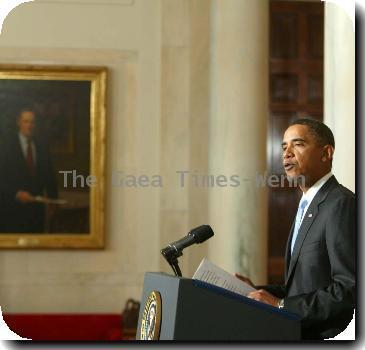Terror attempt prompts changes: More security in the air and better intelligence on the ground
By Eileen Sullivan, APFriday, January 8, 2010
Obama orders up more air security, intel sharing
WASHINGTON — Hundreds of law enforcement officers are being trained as federal air marshals to ramp up security as the Obama administration tries to prevent a repeat of the near-catastrophic attempt to blow up an airliner bound for Detroit on Christmas Day.
President Barack Obama ordered the U.S. intelligence agencies to do a better job of recognizing serious terror threats and sharing information with those who can disrupt a plot as quickly as possible.
The White House on Thursday released a declassified summary of a two-week review that began when a 23-year-old Nigerian man allegedly tried to blow up a Northwest Airlines flight from Amsterdam to Detroit with an explosive hidden in his underwear.
Officials received fragments of information as early as October about an alleged terror recruit they later learned was Umar Farouk Abdulmutallab.
Although intelligence officials knew that an al-Qaida operative in Yemen posed a threat to U.S. security, they did not increase their focus on that threat and did not pull together fragments of data needed to foil the scheme, the review found.
Obama announced about a dozen changes designed to fix that, including new terror watch list guidelines, wider and quicker distribution of intelligence reports, stronger analysis of those reports, international partnerships and an interagency effort to develop next-generation airport screening technologies.
Extra air marshals — one of the additional layers of security ordered for air travel — will add to the more than 4,000 already in the system, officials familiar with the classified strategy said. Obama has also called for enhanced screening technology to detect explosives and other dangerous materials terrorists could try to sneak onto an airplane.
While Obama promised improved security, however, his solutions were laced with bureaucratic reshuffling.
Americans might be surprised that the government was not already taking some of the steps Obama ordered. For instance, he directed the intelligence community to begin assigning direct responsibility for following up leads on high-priority threats.
Obama himself hinted at the difficulties of improving intelligence and security against a terrorist network that devises new methods as fast or faster than the U.S. can come up with defenses.
“There is, of course, no foolproof solution,” he said. “We have to stay one step ahead of a nimble adversary.”
Underscoring Obama’s assertion that no one individual was responsible for failing to thwart the attack, the administration’s report noted that Abdulmutallab’s name was misspelled in one instance, leading the State Department to conclude he did not have a valid U.S. visa when he did. In another instance, the suspect’s name was in a massive government database of suspected terrorists, but it was never moved to a list that would have ensured additional screening before he boarded the airplane in Amsterdam.
The White House is anxious to resolve and move beyond the issue, which threatens to damage the president politically and distract further from his agenda.
“When the system fails, it is my responsibility,” Obama said.
Associated Press writers Ben Feller, Pamela Hess, Matt Apuzzo, Jennifer Loven, Julie Pace and Darlene Superville contributed to this report.
Tags: Airport Security, Barack Obama, North America, Terrorism, Transportation, United States, Washington







